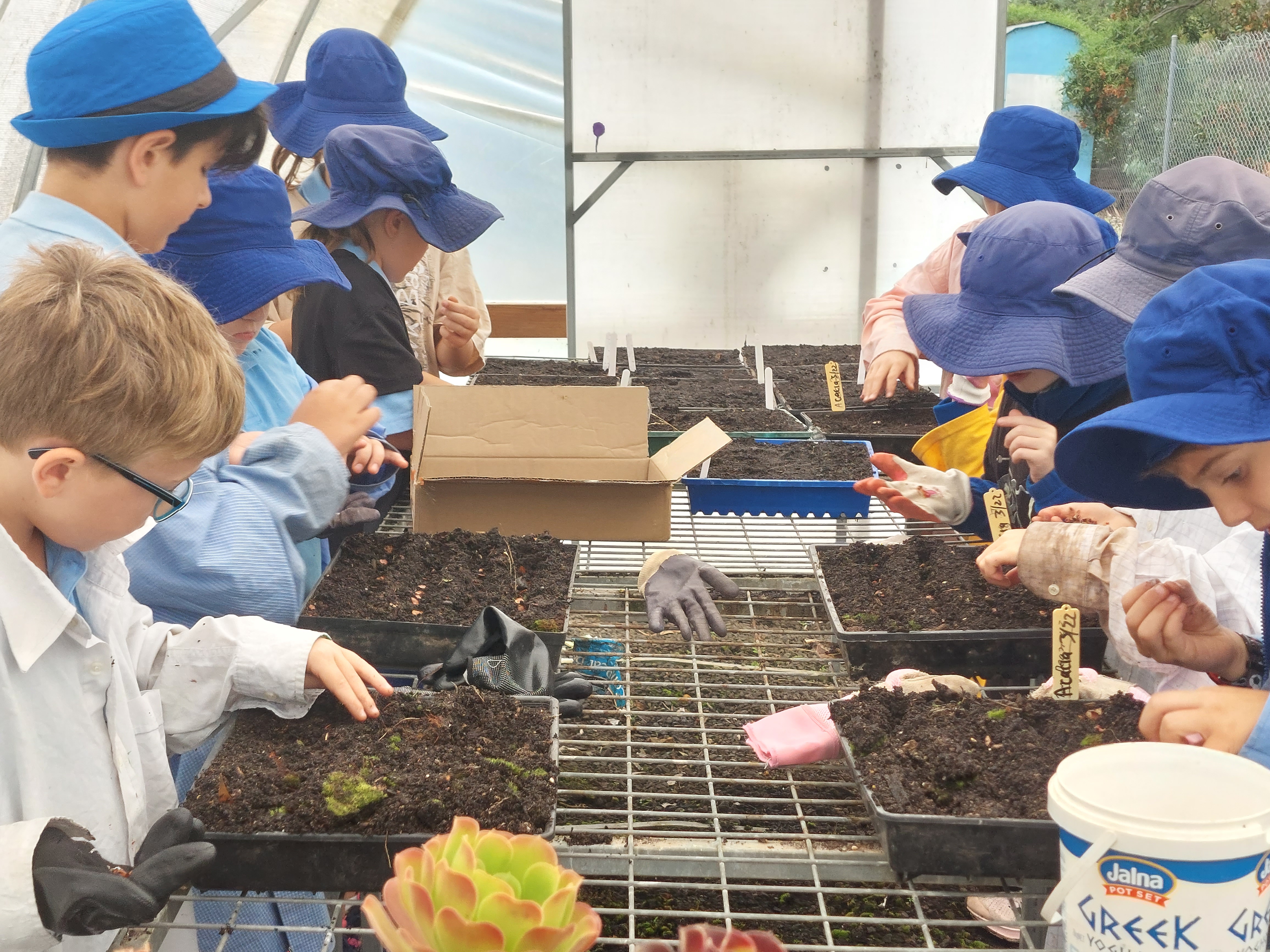Sustainability / Kitchen / Garden Program
Glen Katherine Primary School has had a long and proud tradition of establishing and maintaining a rich environment full of biodiversity, starting with the creation of an indigenous gully at the bottom of the school in 1999. With a further state grant in 2016, a propagation shed and orchard area was made enabling students to become engaged in the collection and growing of seeds to continue the growth of plants and shrubs around the expansive school grounds and gardens.
At the start of each year, students across the school learn about the importance of Country to First Nations peoples, particularly the Wurundjeri people, on whose lands the school is located. Being immersed in our indigenous gully enables students to visualise what Eltham would have been like before colonisation.
All students from Prep to Year Six are able to enjoy all the environmental learnings that this area affords, with classroom teachers using the space for their own lessons as well as all students being encouraged to attend the Monday Gardening Club sessions at lunchtimes. Mrs Webb facilitates gardening activities such as sowing seeds, maintaining vegie beds, mucking out the chook shed, weeding the gully, watering plants, mulching and collecting seeds for propagation. Students learn about the life cycle of plants, from pollination through to fruiting, as well as gaining a deeper understanding of how living things interact together to create a rich, diverse ecosystem. Students are encouraged to think about their own impact on their local communities, and make informed choices about the foods they pack in their lunchboxes as well as where their waste goes.
GK has been fortunate enough to gain grants from a wide range of sectors, including state and local governments as well as private enterprise. This has enabled the habitats started by staff and students over 20 years ago to be built and improved upon. Since 1999 there has been a storm water catchment installed in the gully, enabling a water habitat to be maintained all year around. Fruit trees are now established and their produce is being used in the Kitchen program. In 2021, thanks to grants from Junior Landcare, students embarked on investigations about pollinators – including native bees – and in 2022 they will be building bee hotels for the school grounds, and beyond.



KIDS IN THE KITCHEN - COOKING PROGRAM
Running alongside the gardening program is the Kitchen program. Here students are encouraged by teachers to engage in a range of cooking skills, to make simple and healthy foods that can be easily transferred to home. Whenever possible, produce is sourced from the school community garden, enabling students to understand the seasonality of foods.
As well as a focus on kitchen safety and hygiene, the program also develops students’ understandings of healthy eating and food miles. With guidance, students gain a deeper understanding of how food choices matter – to both themselves and the wider community.
At the end of the cooking session, students are able to sit down and enjoy the fruits of their labour. This is an especially important part of the program as it enables students to taste foods in a safe and supported environment, as well as being able to reflect on what they have learnt as well as share stories about their own food journeys and family recipes. Often the knowledge they gain in the Kitchen is transferred to their own lunchboxes, as they take their learning and share it at home.
